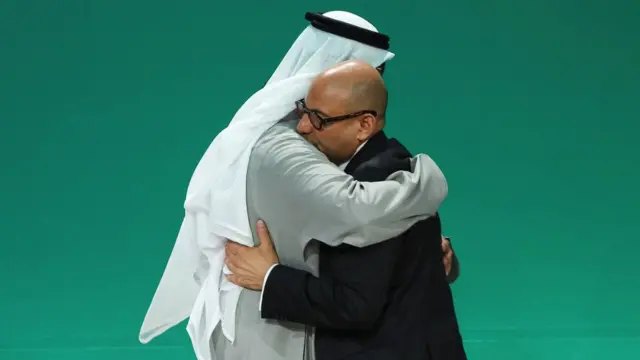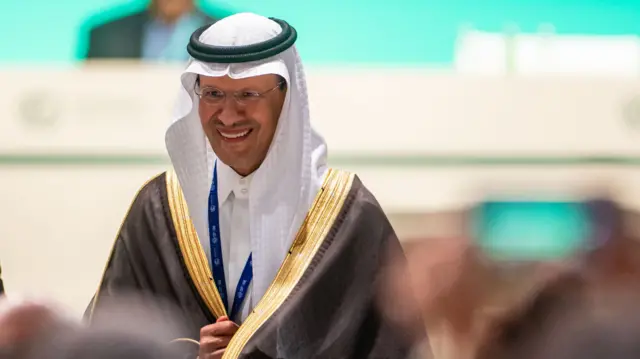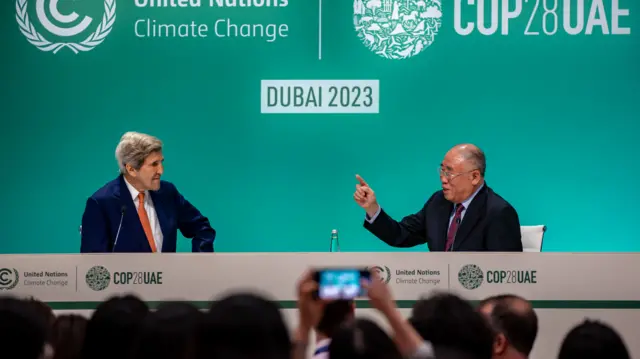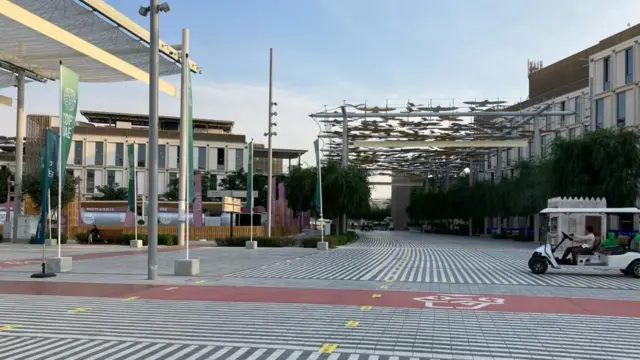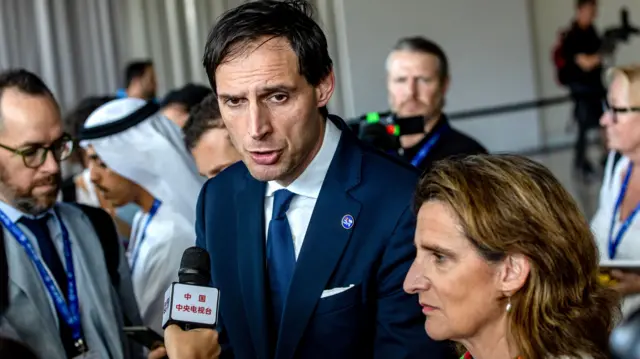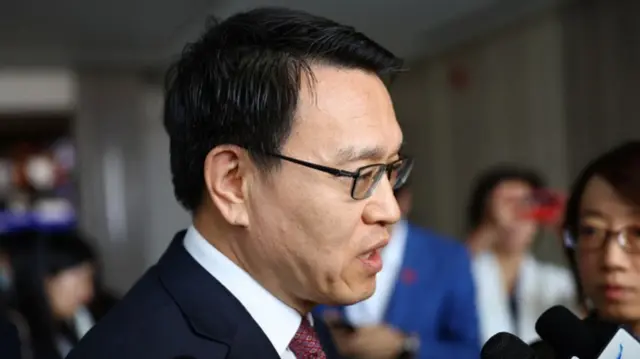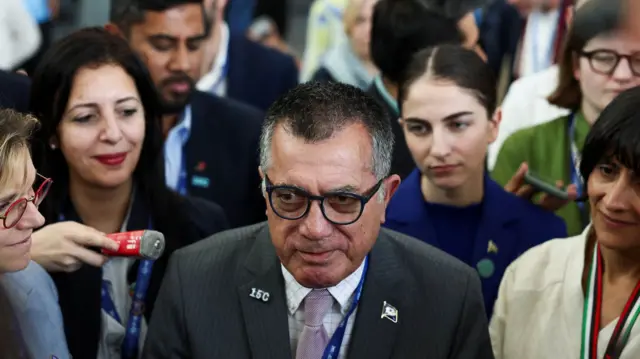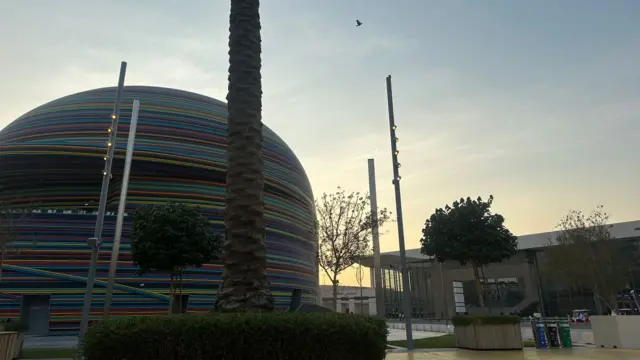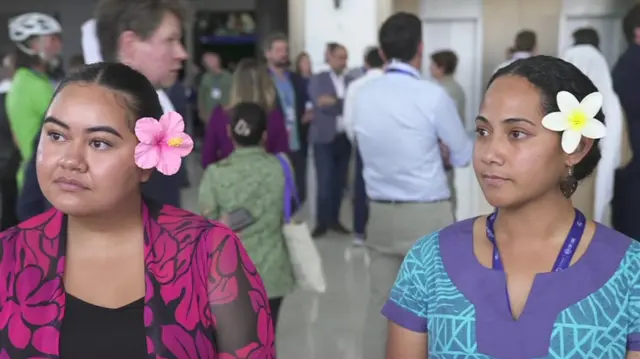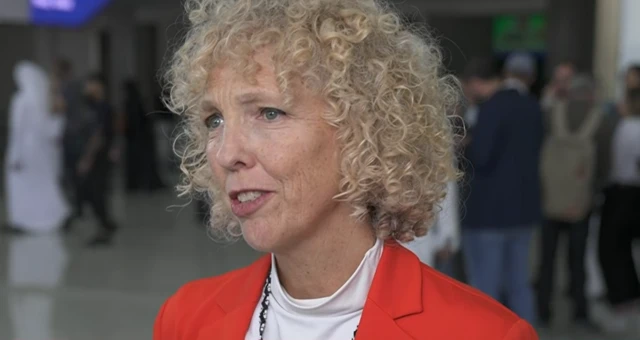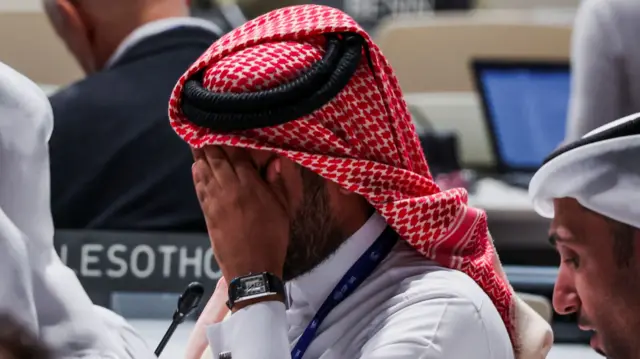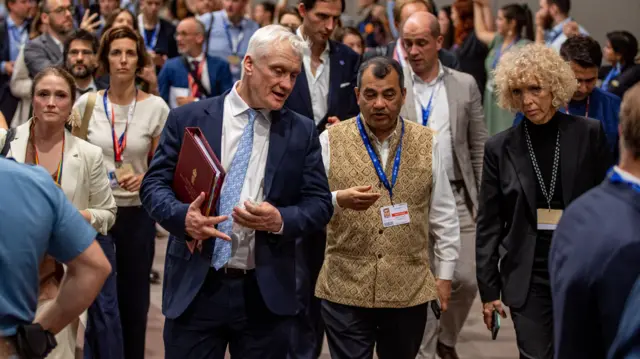Countries call for global move away from fossil fuels - in first deal of its kindpublished at 15:46 GMT 13 December 2023
Dulcie Lee
Live reporter, at COP28
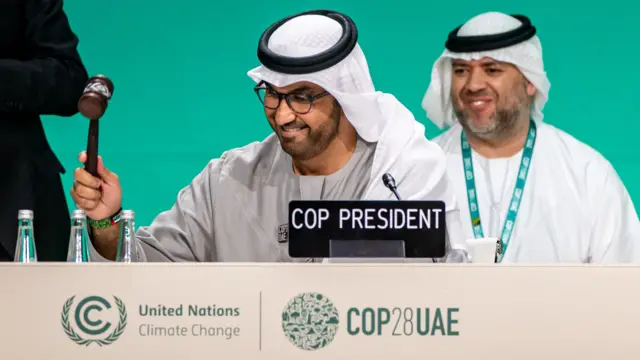 Image source, EPA
Image source, EPA"Is this it? Is this the moment?" I shouted to my colleague in disbelief over the rapturous applause breaking out just moments after COP28 president Sultan al-Jaber began speaking here in Dubai.
After almost 40 hours of deadlock over the future of fossil fuels, many were bracing for a messy fight on the conference floor. But as Jaber banged the gavel, it was all over.
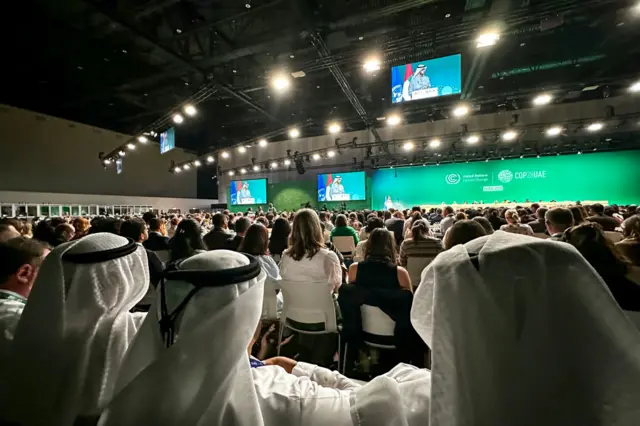 Image source, Getty Images
Image source, Getty ImagesThe host country, the United Arab Emirates, had built expectations sky-high in the first few days, with Jaber proposing a deal to "phase out" fossil fuels.
In the end, the final pact doesn't go so far. It "calls on" countries to "transition away" from fossil fuels, and specifically for energy systems – but not for plastics, transport or agriculture.
Moments later, the applause had turned to stunned silence when a delegate representing small island states, who are particularly vulnerable to climate change, accused the president of pushing through the text while they weren't in the room. The final text had a “litany of loopholes”, they said.
Watch the intervention here
Their speech kicked off several hours of symbolic statements made from countries – but they had all accepted the compromise.
What now?
Well, the remaining team here at COP28 are going to unfold ourselves from the novelty-sized rocking chairs we've found - one of the last remaining pieces of furniture at Expo 2020 - and head home.
But there's plenty more to help you understand exactly what happened here in Dubai:
- My colleague Georgina Rannard has the full story here
- What does this mean for the future? Environment correspondent Matt McGrath takes a look here
- New episodes of Newscast and the Climate Question will drop soon - our climate editor Justin Rowlatt will be digging into the detail
From the team here in Dubai, thanks for joining us. See you in Azerbaijan for COP29.

